Money
Pocket Change
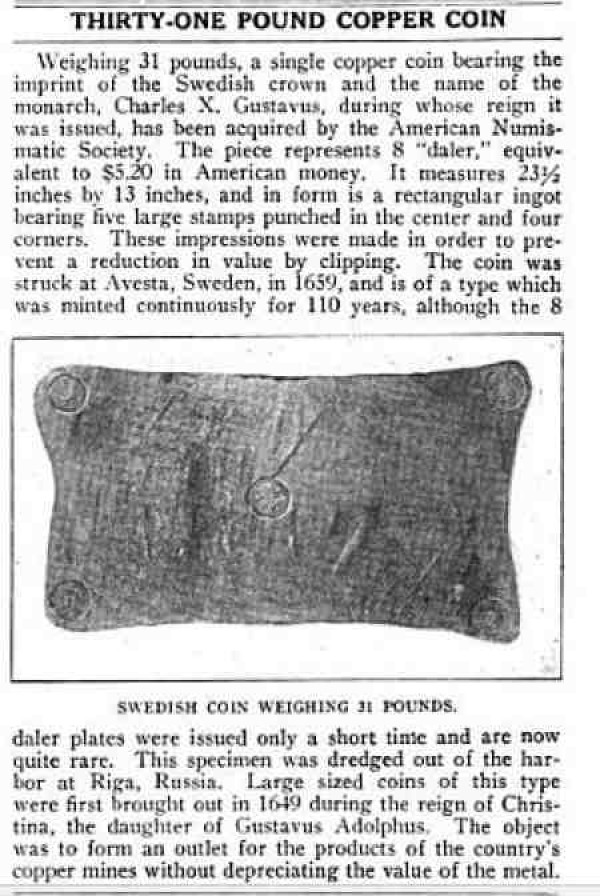
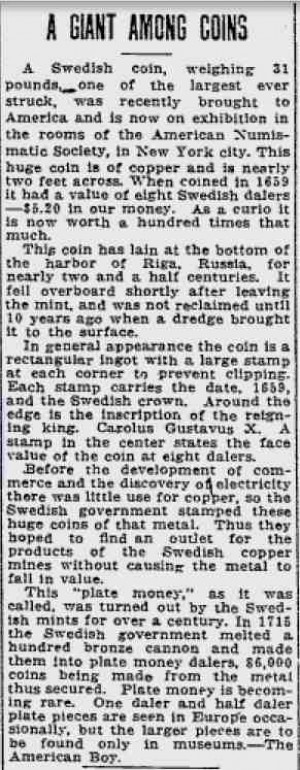
Posted By: Paul - Tue Jan 07, 2014 -
Comments (5)
Category: Excess, Overkill, Hyperbole and Too Much Is Not Enough, Money, Europe, Seventeenth Century
Groucho Sells Bonds
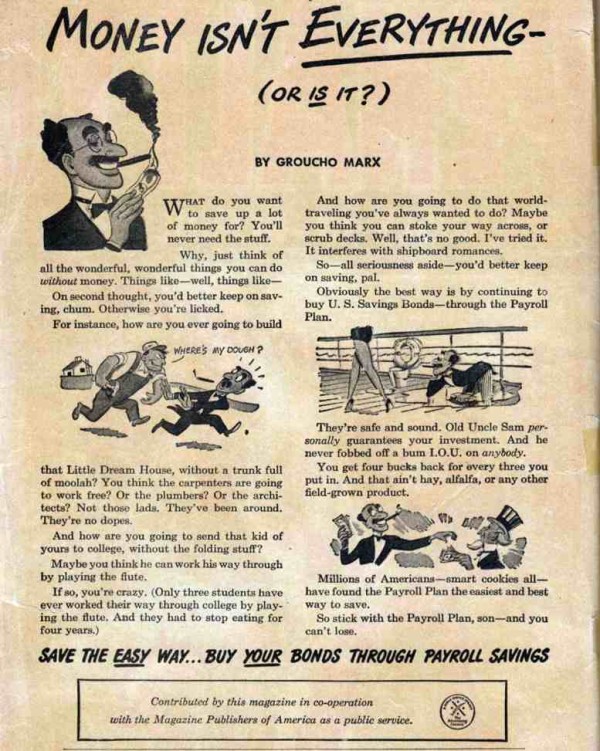
Who would buy anything that Groucho was trying to sell? I can't imagine this campaign moved too many bonds.
Posted By: Paul - Tue Dec 31, 2013 -
Comments (15)
Category: Government, Money, Advertising, 1940s
Why the poor are happier than the rich

From the Washington Post - April 30, 1916.
The gist of the article is summed up in the first paragraph:
As far as I can tell, the Duke of Manchester (William Montagu), wrote this without a hint of irony or sarcasm. He seemed to genuinely believe that being born rich was a great burden. So it's interesting that he did his best to relieve himself of his riches and become poor. From wikipedia:
Posted By: Alex - Sun Nov 10, 2013 -
Comments (4)
Category: Money, 1910s
Wallet Screams If You Don’t Have The Money
Too bad this is only a prototype -- mass distribution isn't planned. But what a great/terrible idea!!Not only does it run away if you are out of money, it screams for help if you pick it up. It will also call your mother to tell on you.
The bad news is that when you have money it starts suggesting buying Amazon products as it scoots towards you playing classical music.
Posted By: gdanea - Mon Oct 28, 2013 -
Comments (7)
Category: Money
Lottery Tips
"Numbers are very unpredictable....Let's use a little bit of reality..."
Uh, yeah, right, um, just remembered, I left the cat boiling back home--gotta run!
Posted By: Paul - Mon Oct 28, 2013 -
Comments (4)
Category: Eccentrics, Money, Outsider Art, Gambling, Casinos, Lotteries and Other Games of Chance
Saving Money for the Weak of Willpower
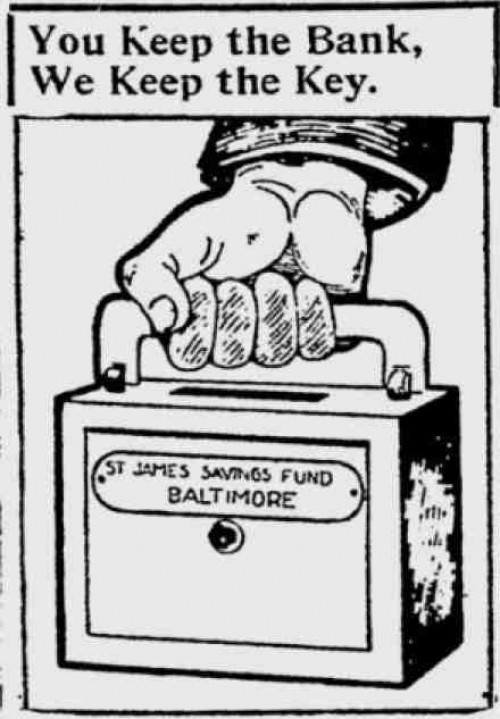
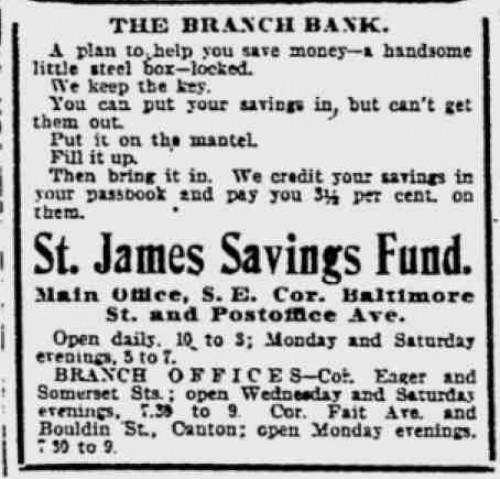
I like this idea a lot. Why doesn't any bank offer such a plan today?
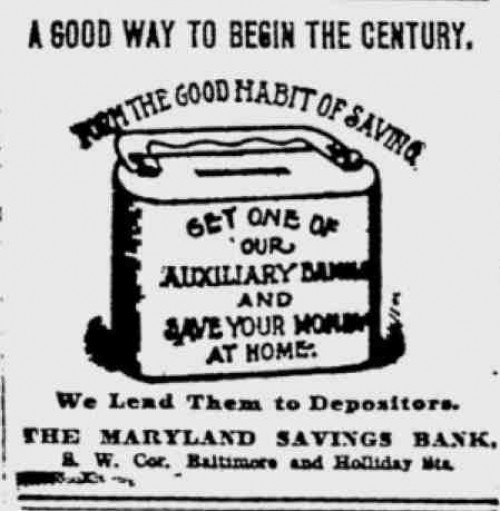
Original ads here (scroll down).
Posted By: Paul - Sat Oct 19, 2013 -
Comments (8)
Category: Money, Psychology, 1900s
The Man Who Owned the Salvation Army
The Salvation Army was founded by William Booth, a dedicated altruistic soul who ran it until his death in 1912.But he also had to be a canny businessman, and in 1878 he had the entire holdings of the enterprise put into his name as sole proprietor.
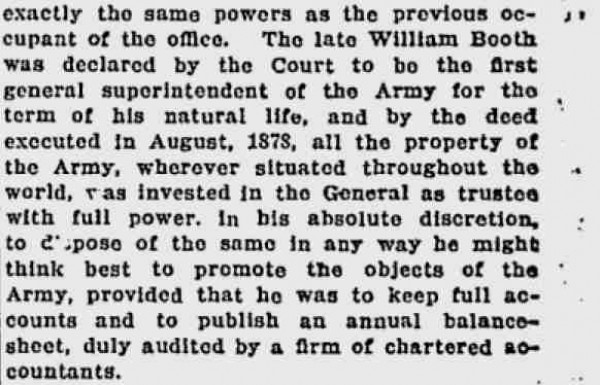
That paragraph above comes from this Australian newspaper, which state that at time of Booth's death the Australian holdings alone amounted to "over half a million pounds."
I find the figure of £975,000 for worldwide holdings from this 1912 biography of Booth. An online inflation calculator for British pounds figures that sum equals £81,700,000.00 today.
So the selfless General was a multimillionaire when he was Promoted to Glory and passed on the Sally to his son Bramwell.
I can't find any data on when the Booth family gave over control of the Army to some kind of board of directors. I assume they did. Did they?
Does any WU-vie have the answer?
Posted By: Paul - Mon Sep 23, 2013 -
Comments (17)
Category: Charities and Philanthropy, Money, 1910s
Most Expensive Everything

We often feature luxury or dumb or crazy products that cost an unreasonable fortune. Well, here's a website that highlights nothing else.
Most Expensive website.
For instance, above is the Most Expensive Honey they could find, $83.00 per jar.
Posted By: Paul - Sat Jul 27, 2013 -
Comments (1)
Category: Money, Outrageous Excess
Man inherits 143 Trillion Marks
From the Daily Kennebec Journal - Aug 23, 1928: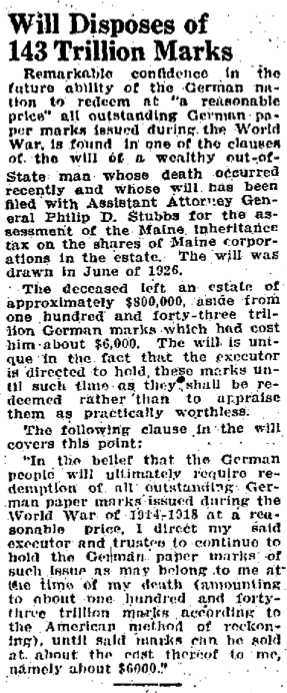
The deceased left an estate of approximately $800,000, aside from one hundred and forty-three trillion German marks which had cost him about $6,000. The will is unique in the fact that the executor is directed to hold these marks until such time as they shall be redeemed rather than to appraise them as practically worthless.
The following clause in the will covers this point:
"In the belief that the German people will ultimately require redemption of all outstanding German paper marks issued during the World War of 1914-1918 at a reasonable price, I direct my said executor and trustee to continue to hold the German paper marks of such issue as may belong to me at the time of my death (amounting to about one hundred and forty-three trillion marks according to the American method of reckoning) until such marks can be sold at about the cost thereof to me, namely about $6000."
Although the article says the trillions of marks were acquired during World War I, that must be wrong. The period of German hyperinflation occurred from 1921-1924.

Posted By: Alex - Sun Jul 07, 2013 -
Comments (3)
Category: Money, 1920s
Blue Bills
Montana Public Radio reports about artist Tim Holmes, who's dying money blue and giving it away. He also stamps it with the phrase, "Based on the value of a clean world!" He hopes this will prompt a widespread discussion about environmentalism. Why? Because the money is blue. He elaborates at his website bluebills.us:So green = "no value" but blue = "clean environment and a healthy community". Got it?

Posted By: Alex - Sat May 11, 2013 -
Comments (11)
Category: Art, Money

| Who We Are |
|---|
| Alex Boese Alex is the creator and curator of the Museum of Hoaxes. He's also the author of various weird, non-fiction, science-themed books such as Elephants on Acid and Psychedelic Apes. Paul Di Filippo Paul has been paid to put weird ideas into fictional form for over thirty years, in his career as a noted science fiction writer. He has recently begun blogging on many curious topics with three fellow writers at The Inferior 4+1. Contact Us |




